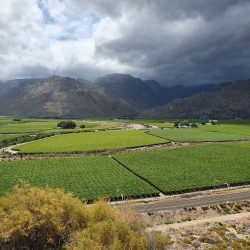Pretoria—In a week dominated by intense scrutiny of South Africa’s land reform policies, political leaders have concerted efforts to quell widespread misinformation, particularly that emanating from the White House. The contentious issue of land reform, a deeply polarising subject within the country for years, has been thrust into the international spotlight, prompting urgent clarifications from government officials and agricultural economists alike.
The claims that property rights are being undermined in South Africa have been categorically dismissed as incorrect by those at the heart of the debate. This week, a sense of relief washed over many as key political figures stepped forward to affirm the nation’s unwavering commitment to maintaining strong property rights throughout the ongoing, and often complex, land reform process.
Among those providing much-needed reassurance is Mr. Mzwanele Nyhontso, South Africa’s Minister of Land Reform and Rural Development. Speaking to this publication, the minister expressed his profound concern over the persistent inaccuracies regarding land rights.
While acknowledging that, like many South African politicians, he has “passionately expressed commitment to land reform that may have pushed the envelope about the possibilities of recent legislation a little farther than realistic,” Minister Nyhontso insisted on the paramount importance of the rule of law. He emphatically reaffirmed a critical point: South Africa has no land expropriation without compensation as a widespread policy.
Crucially, the country’s core land reform policy remains unchanged. The new or updated Expropriation Act, it is important to note, is not primarily a land reform approach and is administered by the Public Works Department, separate from the Department of Land Reform and Rural Development.
In a formal media statement released on May 22, Minister Nyhontso underscored the government’s consistent approach: “All land acquired for land restitution and redistribution purposes by the government is purchased through a fair, transparent, and legal process. Land purchase from previous owners, particularly white owners, is based on negotiated agreements. This approach is aligned with protecting property rights and promoting inclusive development and improved access to land.”
The statement further reiterated the government’s commitment to a land reform process that is “constitutional, economically viable, and socially responsible.”
This affirmation reinforces that South Africa’s land reform remains fundamentally market-based. While heated discussions and diverse ideas on land reform will undoubtedly continue, the underlying principles of fairness, transparency, the rule of law, and the protection of property rights will prevail.
Wandile Sihlobo, the Chief Economist of the Agricultural Business Chamber of South Africa (Agbiz), echoed these sentiments, highlighting the need for a shift in focus beyond merely correcting misconceptions.
“Instead of only clarifying that there is no widescale land expropriation in South Africa, we must also focus on the government’s role and what it could do to ease the land pressures and ensure the better participation of Black farmers in commercial agriculture,” Sihlobo stated. “The first step is for Minister Nyhontsho’s department to move quickly to release the land to black farmers and partner with commodity associations and financial institutions to ensure the appropriate selection of beneficiaries and that there is necessary support for them to make the agricultural initiatives.”
Sihlobo also underscored the significant achievement of the South African government in acquiring over two million hectares of land through the market over time, now held in the state’s books. He urged the swift distribution of this land, with title deeds, to Black farmers, with the primary objective of promoting commercially viable agricultural activities.
The agricultural economist warned that continued misinformation about South Africa’s agricultural and land dynamics could have a detrimental impact on investment and export activities. While acknowledging the necessity of addressing genuine unfair activities, he stressed the government’s crucial role in ensuring the equitable release of acquired land and providing robust support to beneficiaries to ensure the success of land reform efforts.
“We must never forget that land reform must balance two aspects: restorative justice and economic growth,” Sihlobo concluded, drawing on insights from his latest book, The Uncomfortable Truth About South Africa’s Agriculture, co-authored with Professor Johann Kirsten. “Thus, it is essential not to hoard land but to release it with title deeds and speed.”




